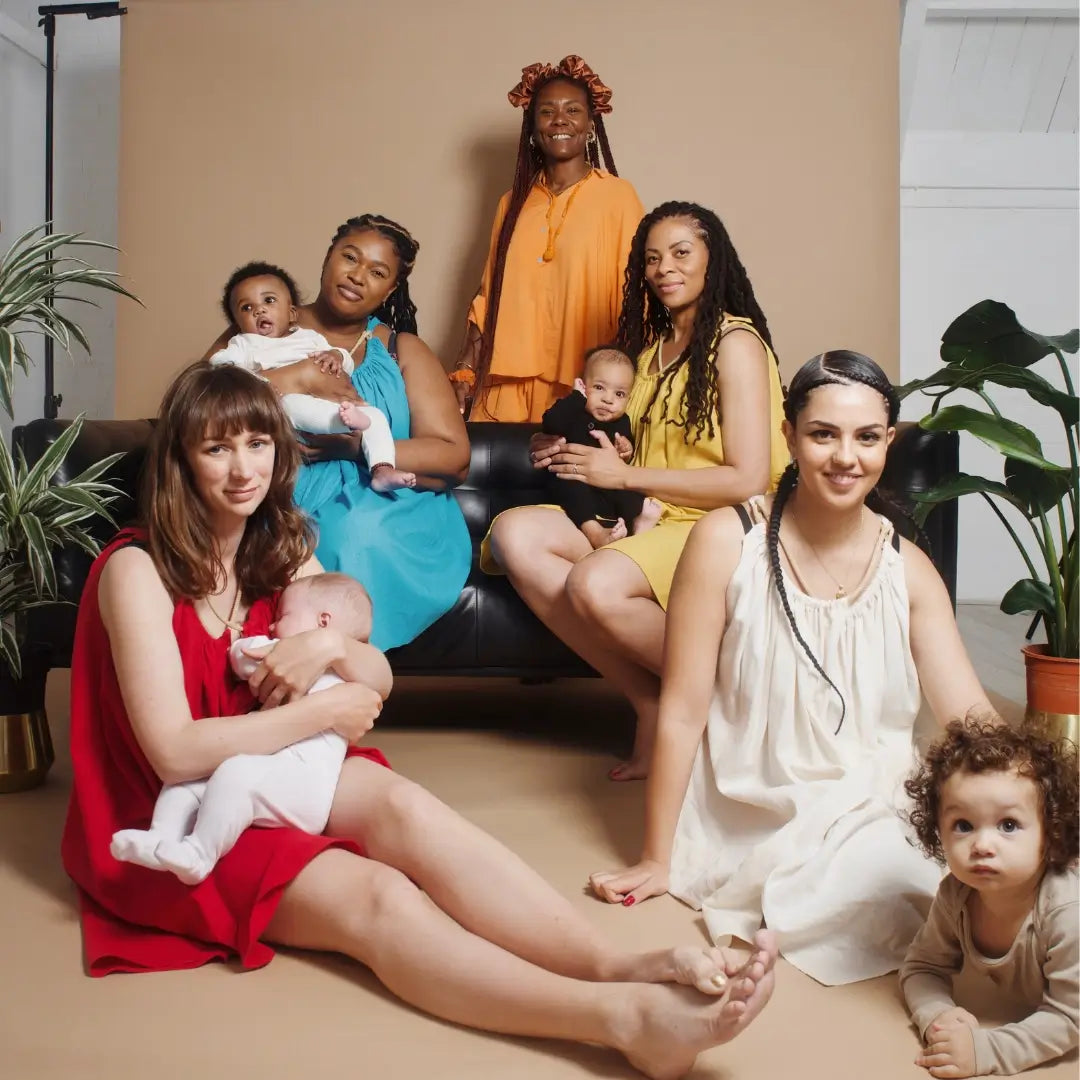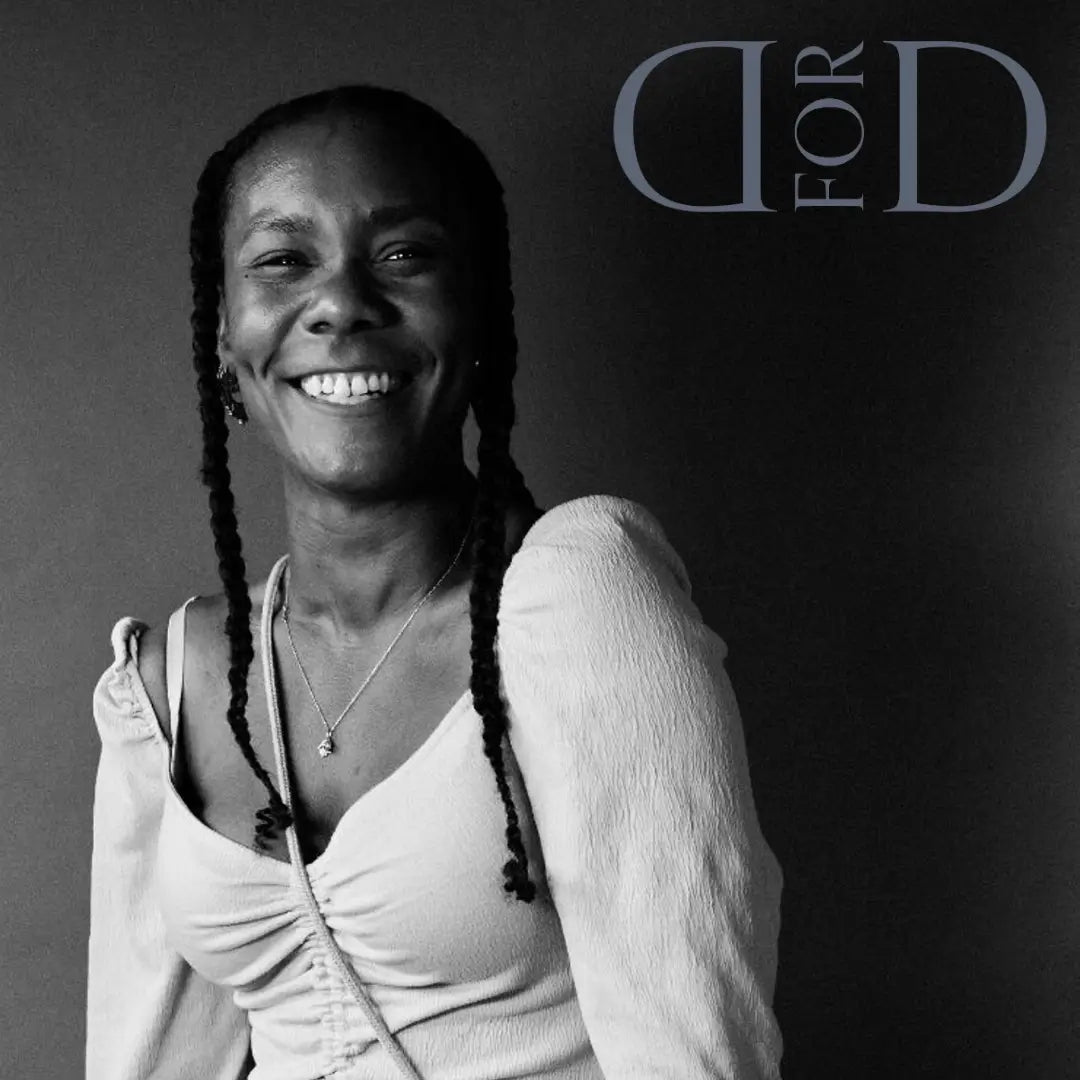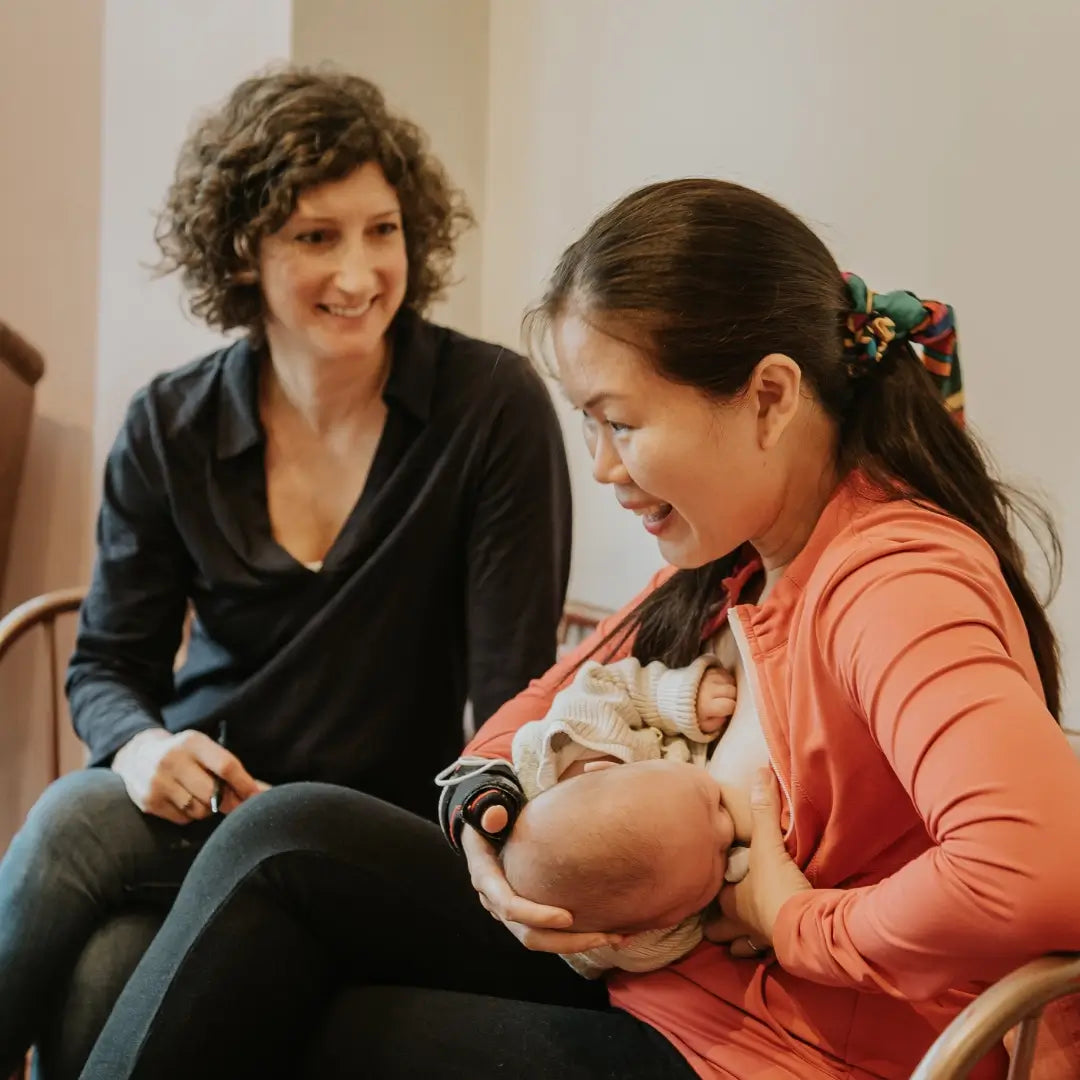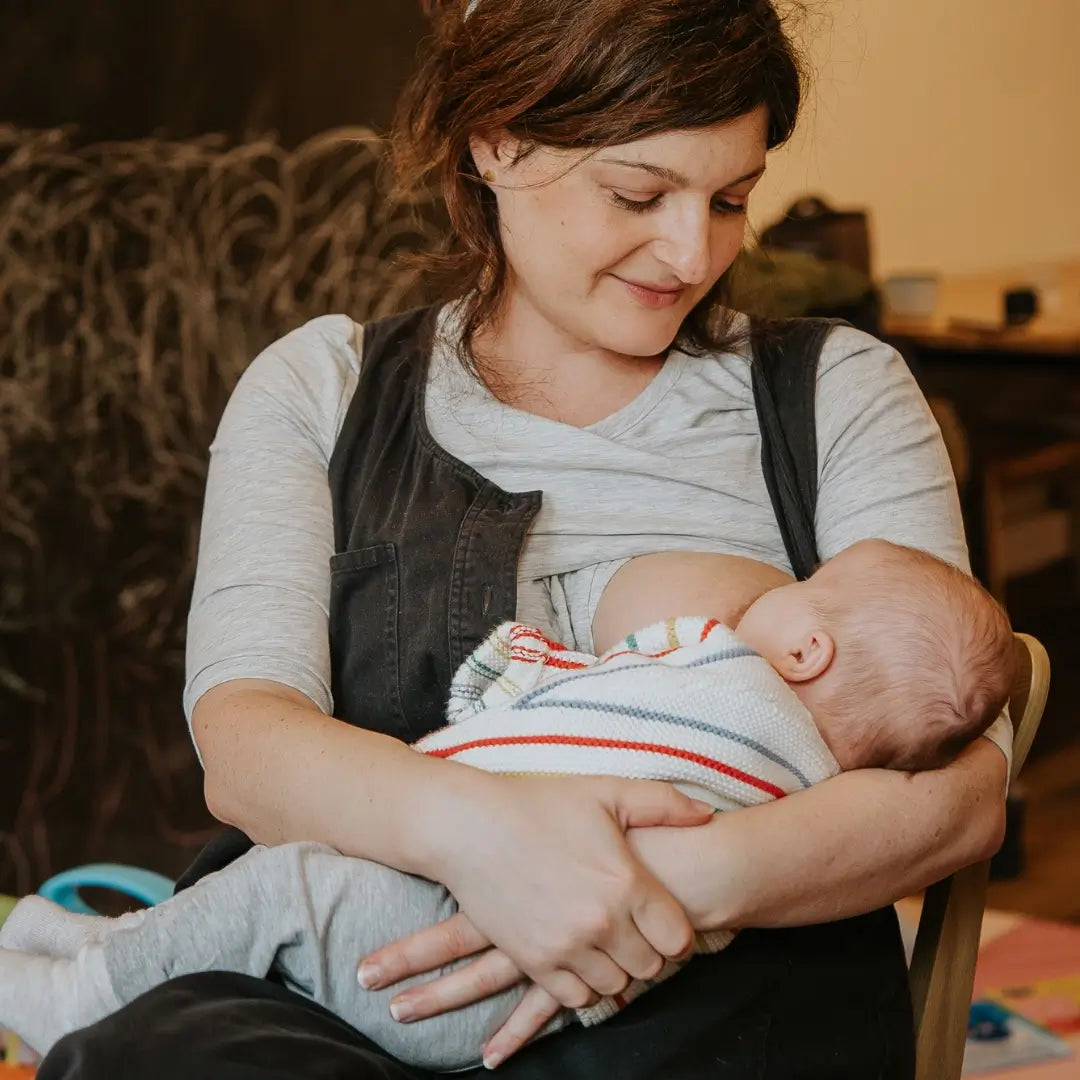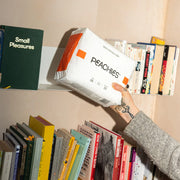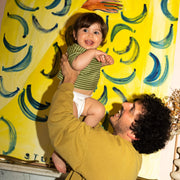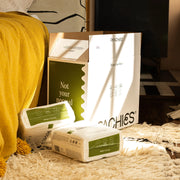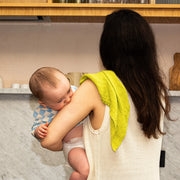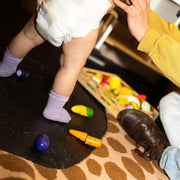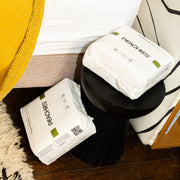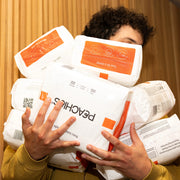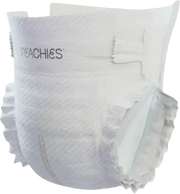Days: 0-90 | Reading time : 3.5 minutes
The takeaway: Babies are supposed to sleep lightly and wake often.
Think about it. The world is big and overwhelming, even more so for your infant who recently left the comfort of the amniotic fluid that protected them before birth. The ‘4th trimester’ is therefore all about keeping your baby close and allowing them skin to skin contact using baby carriers etc to give them that womb-like experience.
It’s also during this 3-months postpartum period that many parents find the safe sleep advice is at odds with their experience getting baby to sleep.
You’ve most likely heard:
- ‘Lay your babies down to sleep on a firm mattress’.
- ‘Bed sharing is unsafe’.
You may have experienced:
- Baby cannot settle on the firm mattress
- Sitting up at night on the sofa or armchair seems to help baby sleep
What you might not have heard:
- A baby that sleeps lightly and wakes often isn’t indicating they’re hungry or dissatisfied - rest assured.
- Research compiled by Durham University’s Baby Sleep Info Source (Basis) shows babies and their breastfeeding carer are biologically hard-wired to sleep together. In this way, mothers and babies who bed-share breastfeed for much longer.
- 50% of all UK babies have bedshared by the time they are 3-months old, and there are ways to do this whilst minimizing risk.
Let’s break these down and bring in data. Even if you don’t see yourself bed-sharing (here are some alternative options provided by Basis), it's good to be informed and assess the risks for your individual situation so you can plan the safest option for you.
Research by James McKenna PhD, founder of the Mother-Baby Behavioral Sleep Laboratory at the University of Notre Dame, shares that it's common and only natural that newborn babies want to be on their parents 24/7 (to the earlier recreating the womb point).
Babies are supposed to sleep lightly and wake often, in fact that pattern is protective for them.
In addition, baby's breathing patterns and body temperature are adjusted when they're close to their parents and it helps them to regulate those things naturally when they're in bed with you.
Many parents use swaddles or sleep aides such as Sleepy Head, Dock-a-Tot, the Cocoonababy because many parents find their baby will happily sleep in them. However, The Lullaby Trust recommends avoiding using these tools for nighttime sleep or when the parent is asleep. The same goes for trying to stay awake on the sofa or in an armchair at night which is in fact unsafe. It’s important to read up yourself so you know the limitations of the sleep aides you’re using.
Bed sharing is an alternative.
Before bed-sharing, however, you should take special care to consider:
- What can we do to make this bed safer?
- Is the bed surface flat and clear of pillows, covers or clothes near the baby’s head? Avoid baby getting too hot and don’t swaddle them.
- Do you need to make plans to avoid pets, other children or adults sleeping in the bed?
- Is there a dangerous little crack between the bed and the wall that one could roll a blanket and jam it into the crack?
- Is the pointy corner of a bedside table overhanging the bed?
- Have they got too warm or do they or could they fold the duvet further down the bed?
- Has anyone in the bed been smoking or ingested alcohol?
- Is the baby breastfeeding day and night?
- Is the baby healthy and were they born full-term?
- Is the baby sleeping on their back?
- All sorts of things like that it's really worth considering and even then it's worth considering every day afresh - What's different today?
Repeat this exercise daily. The greatest risks can be when something changes - whether that’s where you are, the sleep set up etc. Always evaluate the situation anew.
If you rigorously follow these considerations then your baby in bed with you is at no greater risk for SIDS than if they are nearby in a crib.
Bed sharing can enable your baby to get more rest and encourage better chances of successful breastfeeding, according to McKenna who also coined the phrase "breastsleep". Breastsleep is not quite sleeping, not quite breastfeeding, but some blend. Academic studies demonstrate breastfeeding reduces risk of sudden infant death syndrome by approximately 50% at all ages throughout infancy.
That’s a wrap! Want more info? Go here. I’m also available for online consultations and home visits.
-Sally
END


